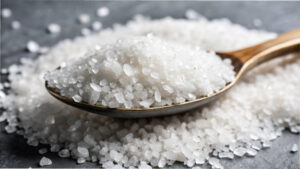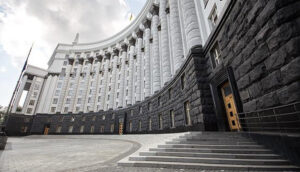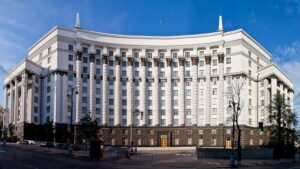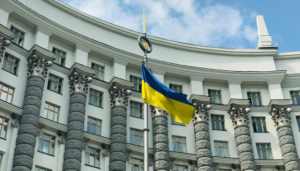
A petition on the Ukrainian Cabinet of Ministers’ website calling for criminal liability for physical violence against animals has gathered the number of votes required for consideration. According to the government website platform, the petition was submitted on January 5, and as of January 10, it had gathered the 25,000 votes required for consideration.
“We, the citizens of Ukraine, appeal to the Cabinet of Ministers of Ukraine with a demand to initiate amendments to the Criminal Code of Ukraine with the aim of introducing real, clear, and effective criminal liability for physical violence against animals,” the petition says.
The author of the petition states that the current legislation of Ukraine in the field of animal protection does not establish strict criminal liability for physical violence leading to suffering, injury, or death of an animal, and the existing sanctions do not have a sufficient deterrent effect.
“In European Union countries, particularly in Greece (Animal Welfare Act No. 4830/2021), physical violence against animals is classified as a serious criminal offense, and the most severe forms of cruelty are punishable by up to 10 years’ imprisonment. This approach has proven effective in reducing cases of animal abuse and is in line with European animal protection standards,” the author added.
In this regard, the government is required to amend the Criminal Code to establish: criminal liability for physical violence against animals resulting in physical pain, suffering, injury, or death of the animal; punishment — imprisonment for 5 to 10 years for such crimes for a first offense; establish a gradation of punishment: for the first act of cruel physical violence — imprisonment for 5 to 7 years; for a repeat offense or one committed with particular cruelty — imprisonment for 7 to 10 years; for systematic violations or in cases of serious consequences — a maximum term of 10 years; provide for additional restrictions that apply to such crimes: a ban on keeping animals for a period of at least 10 years after serving the sentence; creation of a register of persons convicted of cruelty to animals, with restrictions on the right to purchase, own, or care for animals.
As reported, on July 15, 2021, the Verkhovna Rada legislatively strengthened the fight against animal cruelty. In particular, the adopted law provides for the mandatory use of a leash for walking dogs and other domestic animals that may pose a danger to human life or health, as well as muzzles for dangerous breeds of dogs (in particular, Dobermans, Great Danes, German Shepherds, Rottweilers, American Bulldogs, and Bull Terriers). The law prohibits people who have been subject to administrative penalties or measures for committing offenses related to cruelty to animals from keeping animals for one year, as well as for ten years from the date of entry into force of a conviction against persons who have been held criminally liable for cruelty to animals or who have been released from criminal liability and the proceedings have been terminated due to non-rehabilitating circumstances. Cruel treatment of animals – cruelty to animals, including stray animals, is punishable by a fine of 200 to 300 non-taxable minimum incomes (3400-5100 UAH) with confiscation of the animal if the animal’s stay with the owner poses a threat to its life or health. Keeping dogs and cats in places where it is prohibited by the relevant rules, walking dogs without leashes and muzzles, as well as failure by the owner of the animal to clean up its excrement while the animal is in a public place is punishable by a warning or a fine of 10 to 20 non-taxable minimum incomes (170-340 UAH) and a warning or fine for officials of 20 to 50 non-taxable minimum incomes (340-850 UAH).
ANIMALS, CABINET OF MINISTERS, criminal liability, PETITION, violence

The Cabinet of Ministers of Ukraine has abolished quotas on the export of table salt for 2026, according to Government Resolution No. 1795 of December 31 on the list of goods whose export and import are subject to licensing and quotas.
According to the document, there will be no quotas on the export of table salt in 2026, whereas in previous periods, exports of this product were limited by zero quotas.
The resolution is published on the government’s website.

The Cabinet of Ministers of Ukraine has canceled quotas for exports of coking coal of “K” grade for 2026, according to the government’s resolution No. 1795 of December 31 on the list of goods, export and import of which are subject to licensing and quotas.
According to the resolution, the quotas for exports of coking coal grade “K”, which were previously set at zero level, are absent in the document for 2026.
The resolution was published on the government website.

The Cabinet of Ministers has authorized the sale of over-the-counter drugs at gas stations, provided that the appropriate license is obtained, according to Health Minister Viktor Lyashko.
“We have authorized the sale of over-the-counter drugs at gas stations, provided that the appropriate license is obtained. This applies to situations where there are no pharmacies nearby: in villages, in frontline communities, or late at night outside of large cities. We are only talking about safe, over-the-counter drugs that people use on their own. In wartime, this is especially important, as gas station chains often remain operational even during power outages. The requirements for sales at gas stations ensure the quality and safety of medicines. This will help lower prices and make medicines more affordable,” he wrote on Facebook.
According to him, the government has also made a number of decisions, in particular, pharmacies in state and municipal hospitals are required to sell only the three lowest-priced drugs from the National Catalog among drugs with the same composition and effect.
In addition, specialists with a broader range of qualifications, as defined by law, can now be employed in pharmacies and pharmacy outlets.
“In rural areas and frontline communities, medicines can be dispensed in pharmacies (without manufacturing) by specialists with at least a junior bachelor’s degree in nursing and a certificate in pharmacy (retail sale of medicines). This allows pharmacies to build more effective teams, especially in communities with staff shortages, while ensuring the quality and safety of pharmaceutical care for patients,” Lyashko wrote.
In addition, the government has regulated the rules for providing marketing services in the pharmaceutical sector.
“This refers to transparent tools for promoting drugs at points of sale: providing information, placing materials, or participating in loyalty programs. The launch of the National Price Catalog makes it impossible to use marketing as a tool for covertly increasing the cost of drugs—the declared prices are fixed, and promotion becomes a mechanism for informing and increasing accessibility for patients,” the minister noted.

The Cabinet of Ministers published Resolution No. 1596 of December 3, “Issues of Management of Certain Business Entities,” which, as previously reported by Prime Minister Yulia Svyrydenko, initiated the immediate termination of the powers of a significant part of the supervisory boards of key state-owned energy companies.
According to the document, the government expects the Ministry of Energy and the State Property Fund to terminate the powers of the members of the supervisory board of LLC “Gas Transmission System Operator of Ukraine” (OGTSU) Vitaliy Zubriy and Ruslan Strilets, JSC “Energy Company of Ukraine” – Oksana Osmachko and Oleksandr Muzhel, and JSC “Market Operator” Olena Kovalchuk and Andriy Stepanenko.
This list also includes three members of the supervisory board of PJSC Centrenergo, Volodymyr Velychko, Andriy Hota, and Serhiy Simonov, as well as five members of the supervisory board of JSC Ukrainian Distribution Networks, Yevhen Litvinov, Oleg Kantsurov, Andriy Kostrytsya, Svitlana Bilko, and Andriy Pochtaiev.
In addition, the Ministry of Economy, Environment, and Agriculture has been instructed to prepare proposals for convening an extraordinary general meeting of Ukrainian Energy Machines JSC with the aim of terminating the powers of independent member of the supervisory board Andriy Tkachenko.
CABINET OF MINISTERS, CENTRENERGO, MARKET OPERATOR, SUPERVISORY BOARD, ЕКУ, ОГТСУ, УРС